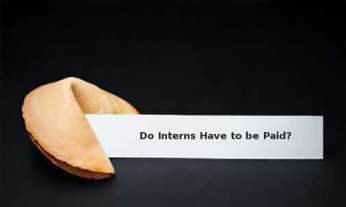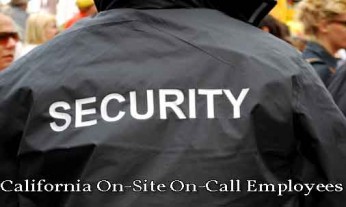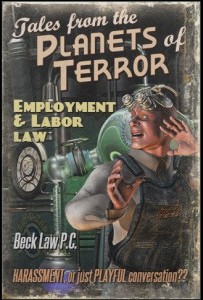 Do interns have to be paid? A recent federal ruling provides some interesting insight into the issue of where the line is drawn between unpaid interns and paid employees. The case, Giatti v. Fox Searchlight Pictures, involved several unpaid interns in the film industry who sued for lost wages under the Fair Labor Standards Act (FLSA). In considering their case, the United States Court of Appeals for the Second Circuit adopted a “primary beneficiary” test, intended to determine whether workers should be considered employees.
Do interns have to be paid? A recent federal ruling provides some interesting insight into the issue of where the line is drawn between unpaid interns and paid employees. The case, Giatti v. Fox Searchlight Pictures, involved several unpaid interns in the film industry who sued for lost wages under the Fair Labor Standards Act (FLSA). In considering their case, the United States Court of Appeals for the Second Circuit adopted a “primary beneficiary” test, intended to determine whether workers should be considered employees.
The primary beneficiary test, as laid out in the decision, focuses on what an intern receives in exchange for his or her work. The test consists of the following “non-exhaustive” considerations, including the extent to which:
- The intern and the employer clearly understand that there is no expectation of compensation. (If there is the promise of compensation, whether it be express or implied, this would suggest that the intern is an employee.)
- The internship provides training that would be similar to that which would be given in an educational environment, including the clinical and other hands-on training provided by educational institutions.
- The internship is tied to the intern’s formal education program by integrated coursework or the receipt of academic credit.
- The internship accommodates the intern’s academic commitments by corresponding to the academic calendar.
- The internship’s duration is limited to the period in which the internship provides the intern with beneficial learning.
- The intern’s work complements, rather than displaces, the work of paid employees while providing significant educational benefits to the intern.
- The intern and the employer understand that the internship is conducted without entitlement to a paid job at the conclusion of the internship.
The court added that none of the factors are dispositive, and that they do not all need to point in the same direction in order to provide an indication as to whether an intern should be considered an employee.
The Department of Labor’s Test
The court rejected the test proposed by the interns, which was developed by the U.S. Department of Labor. This test provides that there is not an employment relationship if the following six factors all apply:
- The internship, even though it includes actual operation of the facilities of the employer, is similar to training which would be given in an educational environment;
- The internship experience is for the benefit of the intern;
- The intern does not displace regular employees, but works under close supervision of existing staff;
- The employer that provides the training derives no immediate advantage from the activities of the intern; and on occasion its operations may actually be impeded;
- The intern is not necessarily entitled to a job at the conclusion of the internship; and
- The employer and the intern understand that the intern is not entitled to wages for the time spent in the internship.
The Department of Labor filed an amicus curiae brief supporting the use of this test, but the court nonetheless chose not to apply it. The court held that this test was “too rigid for our precedent to withstand.”
The FLSA and Your Workplace
The experienced Beck Law P.C., employment and labor law attorneys in Santa Rosa can provide you with advice about any questions you may have in Sonoma County, Mendocino County and Lake County California about the Fair Labor Standards Act. You can call or email our office today to schedule a consultation.





